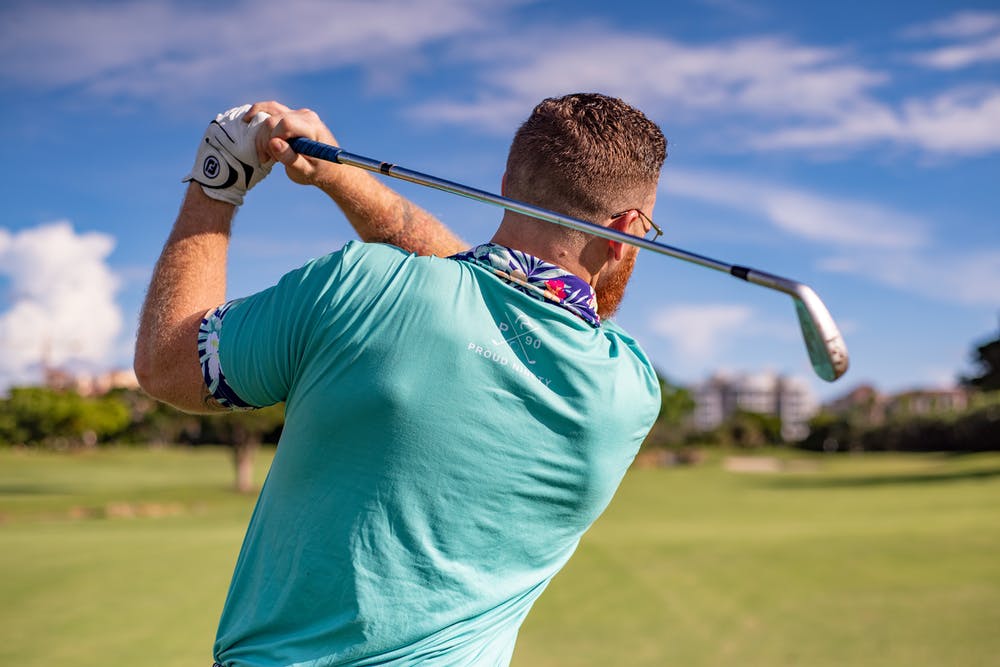nalco group
bone, muscle & joint pain physio
BOOK NOW / WHATSAPP ABOUT YOUR PAIN OR INJURY
- ORCHARD 400 Orchard Road #12-12 Singapore 238875
- TAMPINES 9 Tampines Grande #01-20 Singapore 528735
- SERANGOON 265 Serangoon Central Drive #04-269 Singapore 550265
Home > Blog > Shoulder Physio > Golf Rotator Cuff Tendinopathy Physiotherapy
Golf Rotator Cuff Tendinopathy Physiotherapy

Rotator cuff injuries are one of the most common shoulder injuries that affects golfers.
Golf swings (which of course will be repeatedly done over years if not decades) will cause chronic wear and tear injuries to the rotator cuff muscles. Specific to rotator cuff tendinopathy, what happens is the tendons in the shoulder become painful, swollen and hypercellular, and then the collagen matrix slowly and eventually becomes disorganized, weakening the tendon further.
At the same time, there is an increase vascularity and nerve density, and in some cases, there may also have calcification may occur in any of the rotator cuff tendons (more often
seen in the supraspinatus muscle tendon).
Golf Rotator Cuff Tendinopathy Symptoms
- Pain is often severe at rest, with movements, and at night.
- Pain with overhead activities.
- Activities undertaken at less than 90degrees of abduction are usually pain-free.
- There will be tenderness over the supraspinatus tendon proximal to or at its insertion into the greater tuberosity of the humerus.
- Pain in the shoulder or upper arm pain when the arm is lifted up and away from the body.
- Pain in the front of the shoulder which extends down and into the elbow and forearm
Golf Rotator Cuff Tendinopathy
physiotherapy and what we do
Rest & Cold Therapy:
Rest from the aggravating activity (no golf for a while, we know it's hard but just for a while whilst we sort out the injury and its causes), and apply cold therapy for a bit.
Scapular Stabilization:
The scapulohumeral rhythm refers to the movement of your scapula across your ribcage in relation to your arm (humerus bone). What happens is that this movement can be compromised by anything that influences/changes the position of the scapula.
Those influenes can include scapular muscular imbalance such as the trapezium muscles (upper and lower). Such muscular imbalance can impair the scapulohumeral rhythm which in turn causes impingement of the rotator cuff tendon as your arm is raised above your head in a golf swing (or regular work/activities).
Scapular stabilization physiotherapy refers to a specific set of scapular-related exercises that strengthens your shoulder girdle muscles to restore normal scapular movement and function. These same exercises also facilitates energy transfer through the kinetic movement chain.
Strengthening:
If your shoulder girdle and golf muscles are weak and/or have incoordination (which our senior physios will pick up during our indepth assessment when you first come to us), then we will also work on sport/activity-specific movement and strengthening.
You see, imbalanced or decreased shoulder and rotator cuff strength will cause and aggravate shoulder tendon tendinopathy. Physio shoulder treatment will include strengthening of your external rotators as they tend to be weaker than internal rotators (naturally). Our senior physios will create a customized-to-you and do-with-you program to strengthen your rotator cuff muscles.
Stretching:
Posterior capsular tightness of the shoulder joint is associated with decreased
- internal rotation and
- reduced rotator cuff strength
Regular deep and sustained stretched of the shoulder is required to maintain healthy shoulder muscle and joint length and movement to prevent stiff shoulders from occurring and for full smooth movements and function.
Ultrasound therapy to accelerate soft tissue healing
